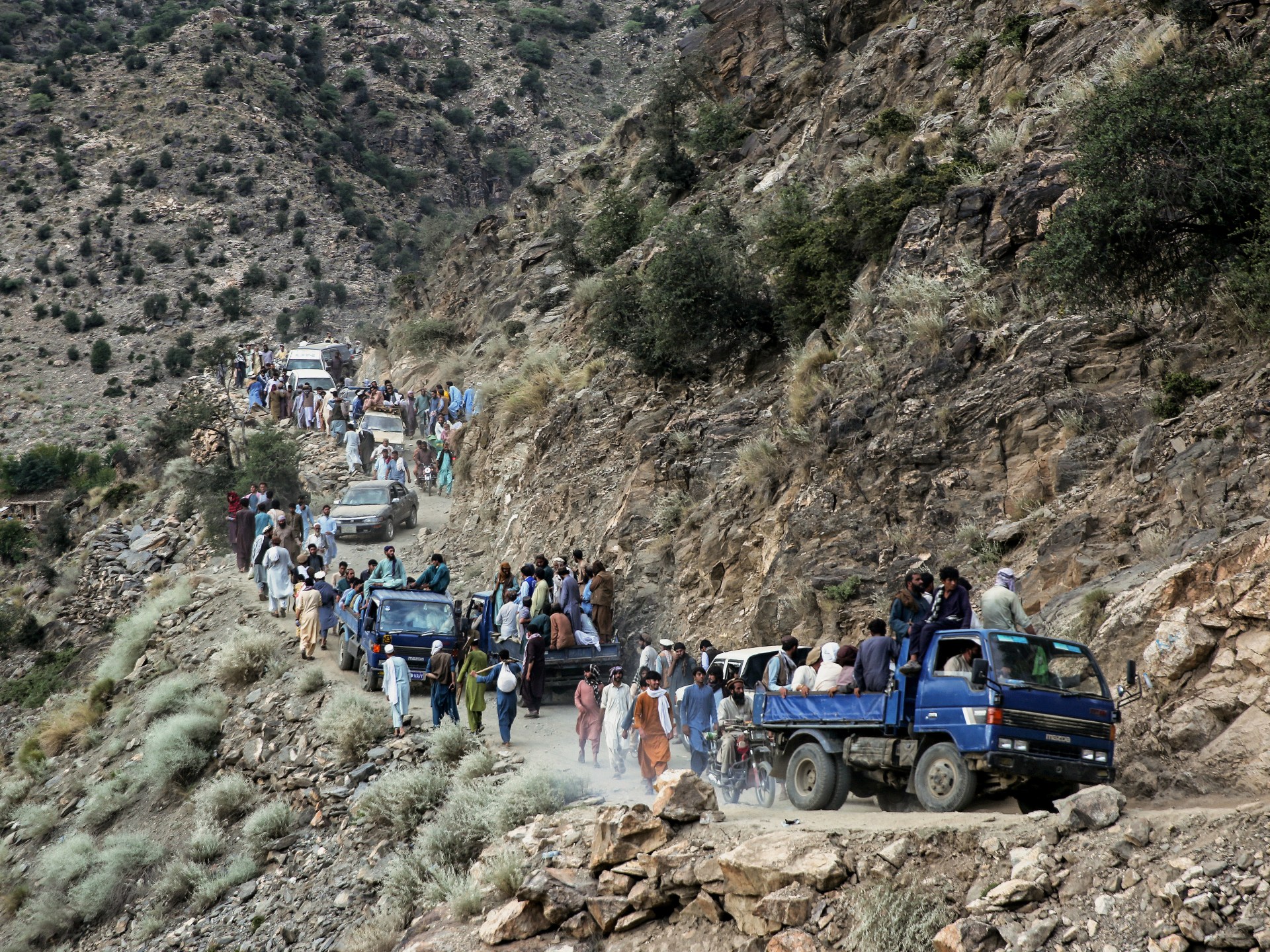The United Nations has said it has been unable to reach 362 villages in Afghanistan in the wake of a deadly earthquake in its eastern Kunar province, which killed at least 2,200 people and flattened entire communities and their homes.
In a news briefing on Monday from Jalalabad, near the epicentre, Shannon O’Hara, who oversees the coordination of the UN’s humanitarian office in Afghanistan, said the earthquake had struck “some of the most remote, rural areas in the country”, making the delivery of humanitarian aid difficult.
Recommended Stories
list of 3 itemsend of list
O’Hara said an initial assessment only took account of 49 out of 411 affected villages in Afghanistan’s eastern regions, and found 5,230 homes destroyed and 672 damaged.
“Even before the earthquake, these villages were difficult to reach. Now, with the earthquake, it takes extraordinary effort to get there,” O’Hara added.
The magnitude 6.0 earthquake struck Afghanistan at the end of August, killing at least 2,200 people, Taliban authorities said, with rescue operations ongoing to reach more affected villages.
The UN believes half a million people may have been affected by the earthquake, including 250,000 children.
Entire villages have been destroyed, and road conditions were made even more difficult due to aftershocks, O’Hara added. She said it took her team more than 6 hours to reach Jalalabad, the largest city near the area most affected by the earthquake.
Humanitarian teams often had to drive long distances to reach villages, including hours spent on foot, highlighting the logistical barriers to aid delivery.
In the mountains of southeast Afghanistan, whole villages have been reduced to piles of stone and mud.
More than a week after a devastating earthquake struck, residents are mourning their families and figuring out how they can survive, having lost everything.
“As we drove towards the epicentre, we saw families walking in the opposite direction – displaced, carrying what little they could. Many were still wearing the same clothes from the night of the earthquake,” O’Hara said. “Mothers and fathers were carrying their children, some with fresh bandages covering their injuries.”
The UN representative also warned that seasonal weather changes, including the possibility of heavy rain and snow in the coming months, could further complicate aid efforts. “Time is running out,” she said. “At the end of October, the winter season will begin, and snow will cut off access to these mountain valleys.
Source: Aljazeera

Leave a Reply